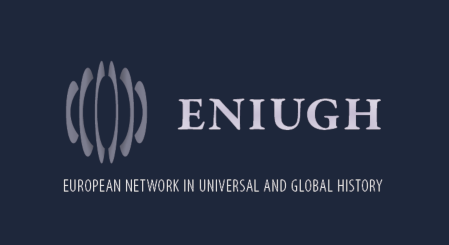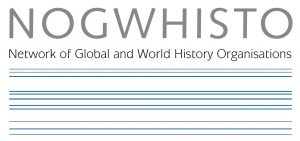The second congress of European world and global historians took place in Dresden in 2008 and profited also from the large presence of world historians from Australia, China, Japan, Cameroon, Nigeria, South Africa, and the US. With this an excellent opportunity arose to compare the state of the art of world and global history in different world regions. This became especially relevant as shortly before the congress, representatives of the North American-based World History Association (WHA), the then recently established Asian Association of World Historians (AAWHA), together with colleagues from Africa and Latin America and from ENIUGH launched a world-wide network of organisations focusing on world and global history (NOGWHISTO).
The Dresden congress was organised under the title “World Orders”, a topic which had been largely dealt with in political science and which is very prominent in the study of international relations, while historians had made only marginal contributions or at least had not used the term so prominently. The idea of “Global Governance”, which is challenged by the idea of only one remaining superpower after 1989, has inspired historians as well to revisit the category of empire, from Rome to Washington. Some have argued that there are lessons to be learnt from the Victorian Empire, while others dispute the continuity from old-fashioned European imperialism to the contemporary world order. In late 19th century imperialism, world order was guaranteed by a potent great power (or a couple of such powers) with the ambition to control world affairs by military means and by political pressure based in economic superiority. From a global historian’s point of view, this raises questions such as what exactly was ‘controlled’? What did control mean with regard to territoriality, trade routes, major resources like energy and raw materials, markets, financial institutions, and so forth? This raises the further issue of when in history it makes sense to speak of a world order. Or, to formulate it differently: Since when do great powers dispose of the technology to control essential parts of world economy and since when have world markets and world affairs been more important than domestic markets and domestic affairs for the chances to develop societies?
The opening lectures were given by Anthony G. Hopkins (Walter Prescott Webb Chair of History and Ideas at the Department of History, University of Texas at Austin) dealing with historiography’s trajectory “From Postmodernism to Globalisation” and by Bénédicte Savoy (Institute for History and Art’s History at the Technical University Berlin) giving a lecture on transnational art history under the title “’Es gibt nichts schöneres auf dem ganzen sublunarischen Erdenrunde.’ Die Kunstsammlungen Dresdens in transnationaler Perspektive”. Both addressed the current debate on globalisation and history from their respective disciplinary perspectives as specialists of British imperial history and continental history of arts, thus focusing on transnational entanglements of and within Europe from different angles.
In the closing discussion Peer Vries (Vienna), Patrick O’Brien (London), Barbara Lüthi (Basel), Katja Naumann (Leipzig), and Madeleine Herren (Heidelberg) targeted crucial themes arising from the panels and expressed their general impressions about what was gained during those three days: notably that an increasing number of younger scholars are entering and strengthening the field of world and global history writing and teaching.
 The opening lectures can be purchased here: http://www.univerlag-leipzig.de/article.html;article_id,1185
The opening lectures can be purchased here: http://www.univerlag-leipzig.de/article.html;article_id,1185
Reports on the session are available at history.transnational, a publication of the keynotes is available.
The programme of the congress can be downloaded here.
_________________________________________________________





